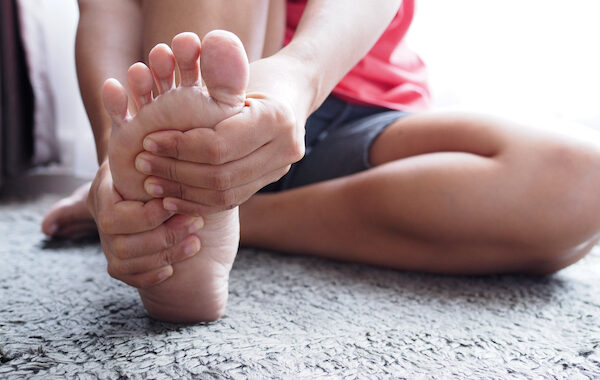Neuropathy is a medical condition characterized by nerve damage that affects the way the nerves communicate with the rest of the body. Neuropathy can occur anywhere in the body, but it is most commonly associated with the feet. When the nerves in the feet are damaged, it can lead to a condition known as neuropathy in the feet. Neuropathy in the feet can cause a range of symptoms, including pain, tingling, numbness, and weakness.
There are several different types of neuropathy that can affect the feet, including diabetic neuropathy, peripheral neuropathy, and autonomic neuropathy. Each type of neuropathy affects different nerves in the feet and can cause different symptoms.
Diabetic neuropathy is a type of neuropathy that occurs in people with diabetes. High blood sugar levels can damage the nerves in the feet, leading to neuropathy. Symptoms of diabetic neuropathy in the feet may include tingling, numbness, burning, or sharp pain. Diabetic neuropathy can also cause weakness in the feet, making it difficult to walk or stand.
Peripheral neuropathy is a type of neuropathy that affects the nerves outside of the brain and spinal cord. It is a common complication of chronic diseases, such as diabetes, alcoholism, and autoimmune disorders. Symptoms of peripheral neuropathy in the feet may include numbness, tingling, burning, or shooting pain.
Autonomic neuropathy is a type of neuropathy that affects the nerves that control involuntary bodily functions, such as heart rate, digestion, and sweating. Autonomic neuropathy can cause a range of symptoms in the feet, including dry skin, decreased sweating, and reduced blood flow to the feet.
Treatment for neuropathy in the feet depends on the underlying cause of the nerve damage. In some cases, treating the underlying condition, such as diabetes or autoimmune disorders, can help alleviate symptoms of neuropathy. Other treatment options for neuropathy in the feet may include medications, such as pain relievers or antidepressants, physical therapy, or nerve stimulation.
Preventing neuropathy in the feet involves taking steps to maintain good foot health, such as wearing comfortable shoes, maintaining good foot hygiene, and avoiding injuries to the feet. People with diabetes should also take steps to control their blood sugar levels, as high blood sugar levels can increase the risk of neuropathy.
In conclusion, neuropathy in the feet is a medical condition characterized by nerve damage that affects the way the nerves communicate with the rest of the body. Neuropathy in the feet can cause a range of symptoms, including pain, tingling, numbness, and weakness. There are several different types of neuropathy that can affect the feet, including diabetic neuropathy, peripheral neuropathy, and autonomic neuropathy. Treatment for neuropathy in the feet depends on the underlying cause of the nerve damage, and preventing neuropathy in the feet involves taking steps to maintain good foot health and control blood sugar levels. If you are experiencing symptoms of neuropathy in the feet, it is important to seek medical attention to determine the underlying cause and receive appropriate treatment.

